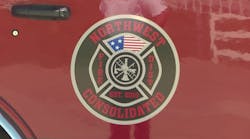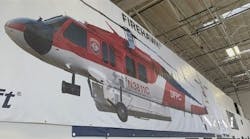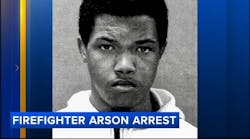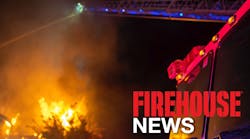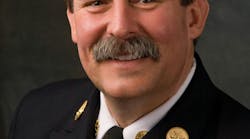What's the first impression the job panel has of you? Your physical appearance, yes. What else? Your choice of words, what you're wearing, eye contact, and your hand shake are all important. You probably missed the most important point!
Your application and resume before you walk in the room! I can't tell you how many times we've seen applications with misspelled words, horrible spelling, chronological order wrong, and we haven't even seen the candidate.
Most resumes are poorly done. The business resume format is not the best for firefighter candidates. That's because with the high volume of candidates, the raters only have a few moments to look at resumes before you walk into the room.
I'm a one-page resume guy for entry level; without a cover letter. Do not give us a book. we will not read it. The board does not have enough time. And do not come into my interview, any interview, thinking you are going to hand the resume to us and we're going to read it then. That is not going to happen. Often candidates will come in, they will try to hand out resumes. This upsets the normal flow of the interview. We're going to read it before you come in the room. If you can submit a resume, get it to personnel to be placed in your file before the interview. Don't fax It. Make the appropriate copies and hand deliver or FedEx them.
A candidate faxed me his resume for review. The cover letter for the position he was applying for stated, "Attached is a "brief" description of my qualifications." I laughed out loud because he had sent me a book. The printer ran out of paper. Save a tree, the raters will not read these volumes. Don't make me send out a search party or go on a treasure hunt to find your great stuff. Hit me with your major qualifications, starting with your experience, on one page. Write it believing the raters won't go past the first page. I don't recommend you put it in a folder. If you still insist putting your resume in a folder, don't cover up the first page with a title page. You can put any supporting details, documents, certificates and letters of recommendation following the first page. Keep it simple.
On a chief's oral you can add more to your resume for education and letters of recommendation. But don't forget to still put the important stuff on the first page, because that's what the raters are going to be looking for.
On the first page of your resume, many people start with their education. For me, I like to have experience jump right off the page. Hit me with experience, bam. Fire fighting, bam. Some kind of training, apparatus operator training, fire school, whatever it is. Hit me with that experience. And that doesn't necessarily have to be in chronological order or fire service experience. So many of the resumes I see, way down at the bottom of the first page, I find the important stuff, because that's how it falls in chronological order. It starts with some education up here, some college, whatever, blah blah, experience, now we're down at the bottom of the page where I might not see it.
I was reviewing a candidate's resume and in chronological order his paramedic certification was at the bottom of the page. I asked him, "What were the most important items on his resume? He said, my firefighter 1 and paramedic certification." They were at the bottom of the page where they might be missed. We put those items on top, so those are the first things that hit you. We put the dates on the right side of the page where it can be referenced. Once you put the dates on the right-hand side of the page, you list your experience in order of importance; not chronological order.
This makes a big difference.
My suggestion for a firefighter resume format:
- Name
- Address
- Phone number and e-mail address
- Experience:
- Education:
- Volunteer and community service
That's all you need. Nothing more, nothing less. Keep it simple.
If you have the opportunity to get that application ahead of time, take it and make a photocopy of it. Then plug in the information. Have a qualified person correct it.
When my son was trying to get on the fire department, he had his mom do that. She is a good speller, and a good typist. Put everything down. Then you've got something that you can transfer to the real application, and that becomes boilerplate. Then you can use it any time you have a new application.
Many applications now are computer generated. They are difficult to type your information into the limited space. These applications can be scanned into a computer where you can easily fill them in.
Make a photocopy because you never know when you're going to that job interview. I talk to people who have put in applications, and six to eight months later, they don't have a copy and don't remember what they've put down.
Testimony from Allan:
Well I'm sorry to say that at 37 years old I thought I knew how to put together a resume. I sent an e-mail to Capt. Bob with a simple question, he asked me to fax over the resume for his review. OUCH, man did that hurt!! It came back with all kinds of "who cares" and scribble marks all over it.
Well you know what? I have never had a resume look so good in my life and with two pages and years of classes, I thought there was no way it could be one page. Boy do I still have a lot to learn! I advise you to give Capt. Bob a chance to look at your resume too, you might just be surprised by what you see.
Absolutely nothing counts 'til you have the badge. Nothing!
